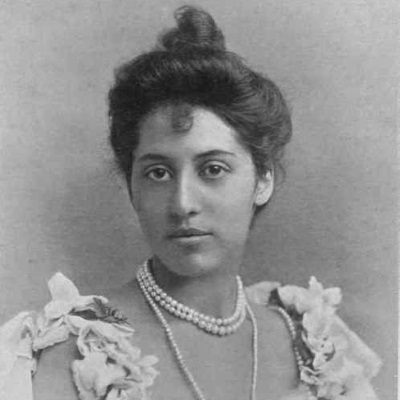1876 - 1948
By: Antonio Melville | Date Added:

Princess Sophia Alexandrovna Duleep Singh (8 August 1876 – 22 August 1948) was a prominent suffragette in the United Kingdom. Her father was Maharaja Duleep Singh, who had been taken from his kingdom of Punjab to the British Raj, and was subsequently exiled to England. Sophia's mother was Bamba Müller, and her godmother was Queen Victoria. She had four sisters, including two halfsisters, and four brothers. She lived in Hampton Court in an apartment in Faraday House given to her by Queen Victoria as a grace and favour. During the early twentieth century, Singh was one of several Indian women who pioneered the cause of women's rights in Britain. Although she is best remembered for her leading role in the Women's Tax Resistance League, she also participated in other women's suffrage groups, including the Women's Social and Political Union. Singh authorised an auction of her belongings, with proceeds benefiting the Women's Tax Resistance League. She solicited subscriptions to the cause, and was photographed selling The Suffragette newspaper outside her home and from press carts. On 22 May 1911 Singh was fined £3 by the Spelthorne Petty Sessions Court for illegally keeping a coach, a helper, and five dogs and for using a roll of arms. She protested that she should not have to pay the licence fees without the right to vote. That July a bailiff went to Singh's house to collect an unpaid fine of 14 shillings, which she refused to pay. Her diamond ring was then confiscated by the police and auctioned a few days later; a friend bought it and returned it to her. In December 1913, Singh was fined £12/10s for refusing to pay licence fees for two dogs, a carriage and a servant. On 13 December 1913 she and other WTRL members appeared in court and Singh was again accused of keeping dogs without a licence. Singh tried to fall in front of Prime Minister H. H. Asquith's car while holding a poster reading, "Give women the vote!" She supported the manufacture of bombs, encouraging anarchy in Britain. Despite Singh's activism as a suffragette, she was never arrested; although her activities were watched by the administration, they may not have wanted to make a martyr of her.
click hereShare your thoughts on this story with us. Your comments will not be made public.
Email
Copyright ©2016 - Design By Bureau Blank